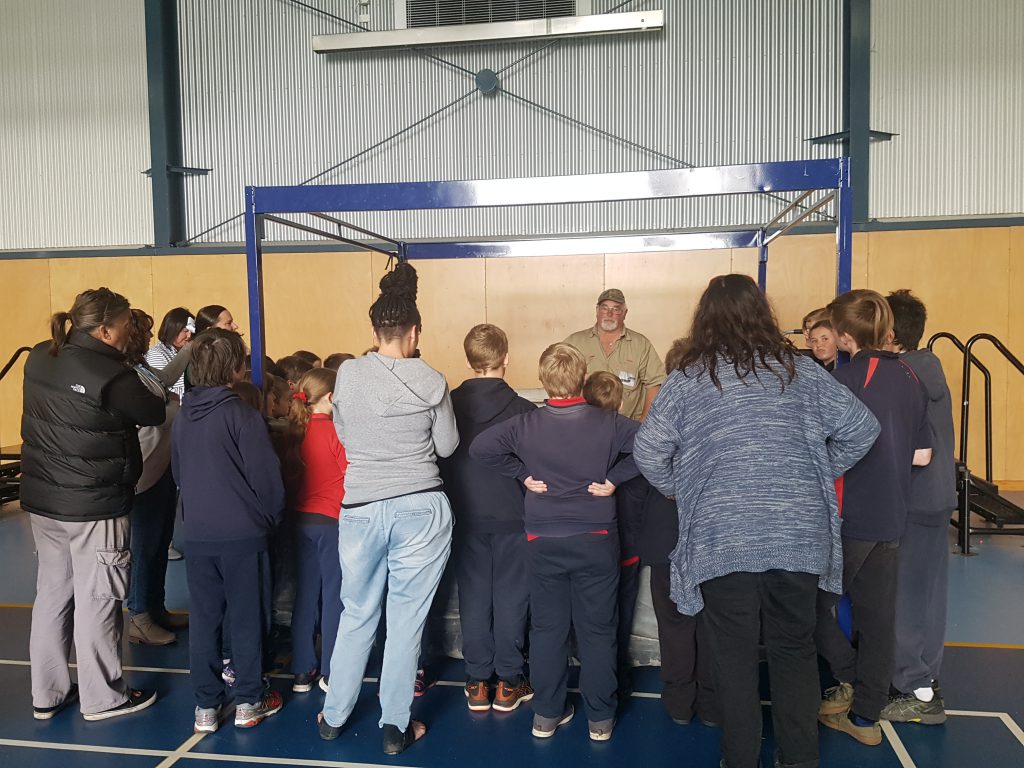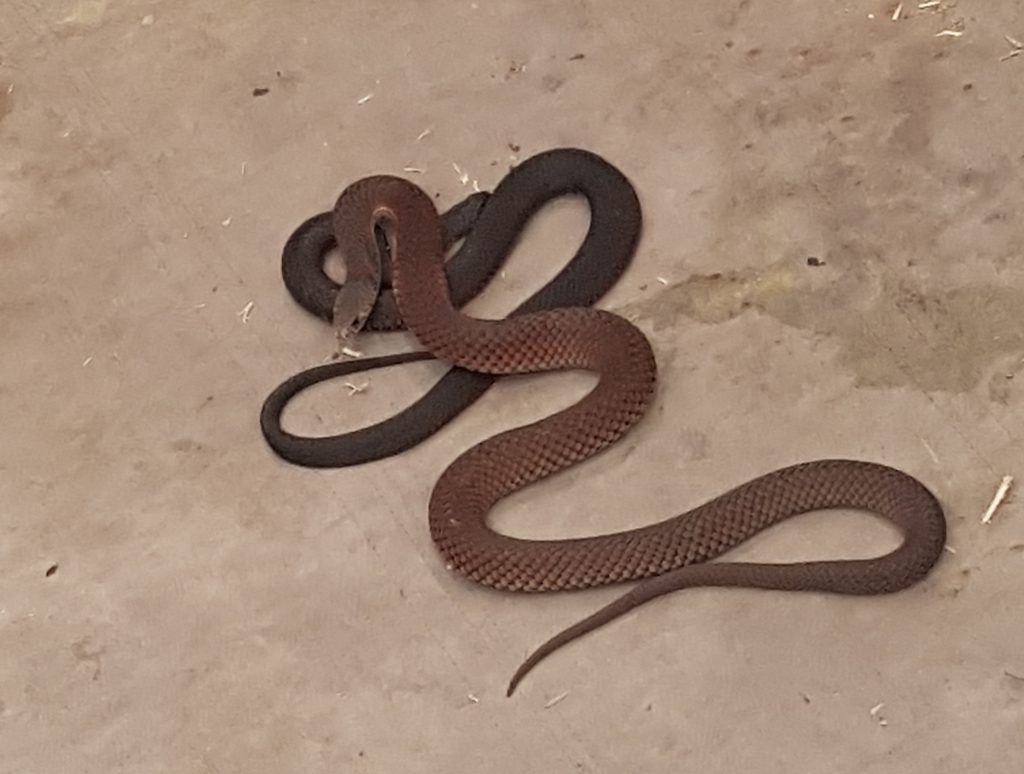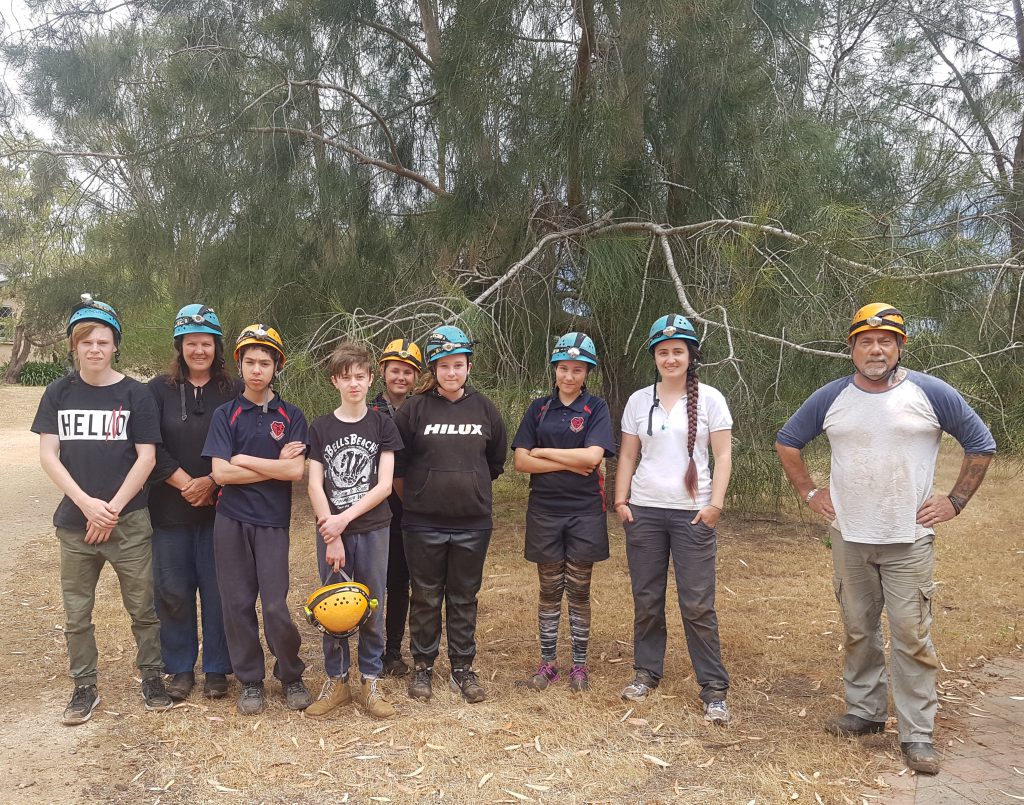Tackling snakes and crawling through caves… Celebrating ten years of ForestrySA’s biodiversity schools program!
Anyone who enjoys time outdoors in Australia knows that snake encounters are something which we need to be aware of. Every time we head out on a ForestrySA biodiversity schools program excursion, the safety talk includes what to do if we see a snake. Although in the two years I’ve been working on the project we haven’t had a snake sighting, it’s important to be aware off the risk and at the same time know the scale of that risk (while several hundred snake bites occur per year in Australia, on average just two are fatal).
Snakes are an important part of food webs and our environment; they also play a vital role in keeping pest species down in residential and agricultural areas. Not to mention, all native wildlife is protected! Although some research on monkeys suggests that our fear of snakes may be partly innate, I am confident that it is to a large degree a social construct (i.e. a learned fear response behaviour from our elders). The good news is, what is learnt can be unlearnt, and if you are a snake-hater you can learn to love (or maybe just tolerate and respect) these beautiful and important creatures!
I invited David Miles from SE Snake Awareness to run some sessions with Newbery Park Primary School and Millicent High School, hoping that an up-close encounter and expert information would help foster respect for these important reptiles.
At these sessions, David erects a cage in which he can safely show students highly venomous snakes.
First off, David showed us the three most common snakes you may run into in the South East: the tiger snake, common brown snake, and lowland copperhead.
He then showed us a red-bellied black snake, a species which does not occur here in the lower South East – although copperheads are frequently mistaken for red-bellies due to their colouring.
In the second half of the session we got to get hands on! The students met and held Shiloh, an albino carpet python, and Olive, a 10 kilogram olive python. We also got acquainted with blue-tongue and stumpy tail lizards.
While some staff were a bit squeamish and reluctant to get close to the reptiles, it was obvious that most of the students loved it.
One parent later commented that she was glad her son had the opportunity to see and interact with snakes in a safe environment. I hope that these sessions will contribute to a sense of respect for our slithery bush friends as the students grow up!
No snakes were spotted on the Millicent HS biodiversity students’ final excursion for the year – adventure caving at Naracoorte Caves. The students revelled in overcoming the challenges, with names such as Key Hole – it was a tight and twisty squeeze! It was fantastic to see their determination, problem solving skills, and team work in action.
Last Friday, Millicent High School hosted a gathering to celebrate 10 years of the biodiversity schools program. Troy Horn (ForestrySA) spoke about the background and history of the program, followed by Kathy Bell (Millicent High School) making a heartfelt speech about her pride in her school’s achievements. This year’s program students were given certificates and had the opportunity to say something if they wished.
It has been an absolute pleasure for NGT to facilitate the biodiversity schools program on behalf of ForestrySA over the past two years. I have really enjoyed getting to know each school, the staff, and especially the students.
I’d like to give a huge thank you to Ange Jones and Kathy Bell for all their enthusiasm and efforts within their schools – the program certainly couldn’t happen without them. Here’s to another ten years!
This program is supported by:








